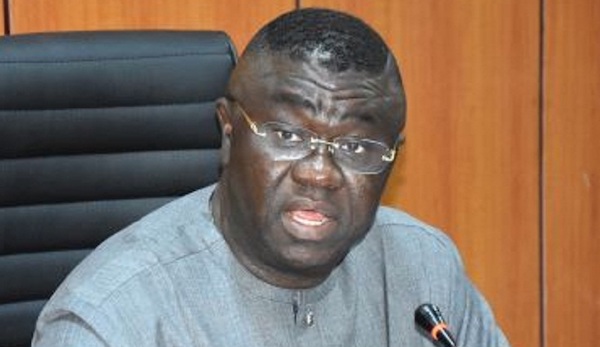Business
Nigeria received $26.94bn in foreign donations in six years

Nigeria received the sum of $26.94 billion as development assistance funds from international donors from 2015 to 2020, Minister of State for Budget and National Planning Clement Agba said on Tuesday.
He made the disclosure in Abuja while briefing the House of Representatives Committee on Civil Society and Development Partners on transfers and disbursements to government agencies, donor fund receipts, civil society and non-governmental organisations in Nigeria.
$2.34 billion was received in 2015, $1.15 billion in 2016, $774.93 million in 2017, $22.02 billion in 2018, $655.64 million in 2019 and $5.64 million in 2020.
The donations, according to Agba, came from the United Nations Development System, the European Development Fund and China.
Other donors include the German International Cooperation, Japan via the Japan International Cooperation Agency, Korean International Cooperation Agency, Department for International Development and United States Agency for International Development.
Read also: Nigerian govt bars foreign firms from bidding for contracts below N5bn
The minister said his ministry did not receive donor funds and, for that reason, could not transfer or disburse what it did not receive.
He added that the country did not qualify for budget support as it was not classified as “very poor” but a lower income country that was only eligible for projects/programmes.
“The implication of this is that donors do not give us the funds for management. Rather, donors work with the sectoral stakeholders to fund the projects directly, after identifying the needs by the MDAs/states, in line with the Paris Declaration on Aid Effectiveness.
“For the purpose of clarification, the Federal Ministry of Finance, Budget and National Planning is responsible for coordinating Nigeria’s multilateral and bilateral economic cooperation, including development Aid and Technical Assistance Programmes by signing of Cooperation Agreements, facilitating the implementation of programmes and projects as well as monitoring and evaluation.”
Agba went further to say the ministry has a duty to coordinate the bilateral and multilateral institutions, non-governmental organisations, international non-governmental organisations and civil society organisations.
“Interventions in these identified areas are done directly in collaboration with the relevant ministries, departments and agencies as well as states and local government areas through their implementing agencies.
“In view of the above, procurement is carried out directly by the donors,” he said.
Join the conversation
Support Ripples Nigeria, hold up solutions journalism
Balanced, fearless journalism driven by data comes at huge financial costs.
As a media platform, we hold leadership accountable and will not trade the right to press freedom and free speech for a piece of cake.
If you like what we do, and are ready to uphold solutions journalism, kindly donate to the Ripples Nigeria cause.
Your support would help to ensure that citizens and institutions continue to have free access to credible and reliable information for societal development.
























